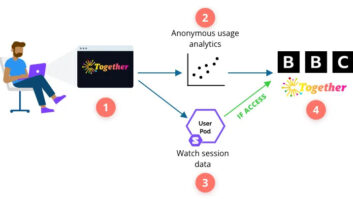
Eighty-seven per cent of network operators have completed or are currently implementing a big data analytics strategy, according to the findings of a global survey. The research explores operators’ strategies around big data analytics, and indicates that big data will remain firmly at the top of operators’ agendas for 2016.
The primary drivers behind this increase in adoption of strategies include: revenue maximisation, customer experience and loyalty, and opex reduction. Within these areas, the main uses cases that operators are looking to address in the next two years are proactive customer care, revenue assurance, targeted offerings, and service assurance.
The research further revealed that operators are focusing their initial efforts on combining disparate siloes of data across their organisation. The biggest efforts are going on combining online consumer data, such as web browsing habits, with offline consumer data, such as billing history. The secondary area of focus is on combining customer data with network operations data to enable a correlation of factors, such as the relationship between network faults and subscriber behaviour for contextual insights.
The research also identified the key barriers operators are struggling to overcome as they implement their big data analytics strategies. These include the inability to integrate disparate systems of data, poor data quality and management, and finding people with the right skill set to handle big data projects.
Despite the hype around data lakes as an effective way of integrating data, operators exhibit a clear lack of confidence in this method; only 22 per cent of respondents see data lakes as crucial to analysing disparate sources of data. Added to this, 68 per cent of operators remain unsure or are waiting to see if data lakes will emerge as more than just hype.
“As big data strategies mature, the focus is shifting from simply trying to collect and analyse large data sets, to being able to derive actionable, operational intelligence,” said Anukool Lakhina (pictured), founder and CEO, Guavus. “The findings show that operators have realised that the ability to fuse data streams and bridge the gap between business and operational data is essential to achieving this goal. However, it’s also vital to strip out only the most valuable nuggets of data for analysis, as trying to store everything will increase costs, delay time to insight and devalue the quality of the analytics provided. The limited confidence in data lakes shows that operators have realised a more effective approach is needed to derive value from big data. Streaming real-time analytics, with use-case specific applications that have data science built-in will put operators in a much better position. These analytics applications have data science embedded in them, so can also simultaneously address the shortage of data scientists, by removing the need for them.”
The survey of 81 qualified respondents working across a range of functions for 65 network operators was conducted by Heavy Reading as part of a multi-client study.







